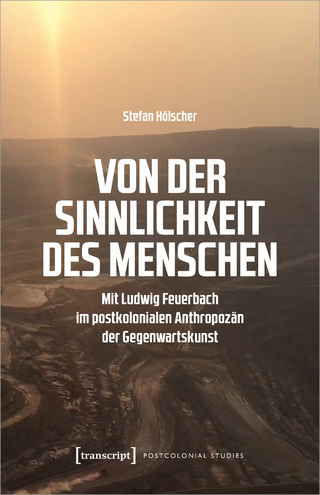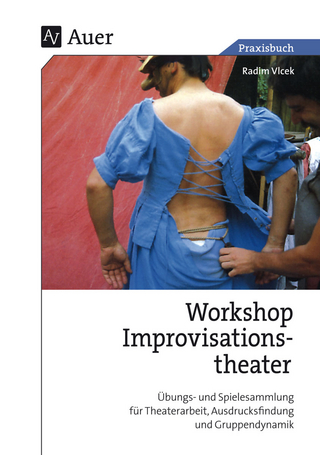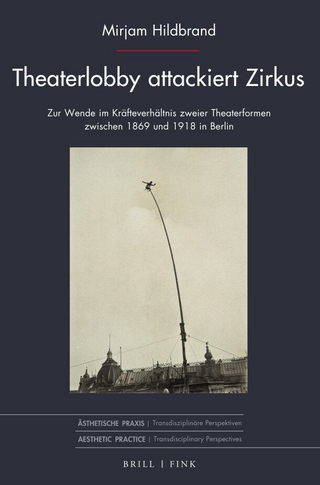
Poverty and Charity in Early Modern Theatre and Performance
Seiten
2015
University of Iowa Press (Verlag)
978-1-60938-361-9 (ISBN)
University of Iowa Press (Verlag)
978-1-60938-361-9 (ISBN)
Whereas previous studies of poverty and early modern theatre have concentrated on England and the criminal rogue,Poverty and Charity in Early Modern Theatre and Performance takes a transnational approach, which reveals a greater range of attitudes and charitable practices regarding the poor than state poor laws and rogue books suggest.
Whereas previous studies of poverty and early modern theatre have concentrated on England and the criminal rogue,Poverty and Charity in Early Modern Theatre and Performance takes atransnational approach, which reveals a greater range of attitudesand charitable practices regarding the poor than state poor laws and rogue books suggest. Close study of German and Latin beggar catalogues, popular songs performed in Italian piazzas, the Paduan actorplaywright Ruzante, the commedia dell’arte in both Italy and France, and Shakespeare demonstrate how early modern theatre and performance could reveal the gap between official policy and actual practices regarding the poor.
The actorbased theatre and performance traditions examined in this study, which persistently explore felt connections between the itinerant actor and the vagabond beggar, evoke the poor through complex and variegated forms of imagination, thought, and feeling. Early modern theatre does not simply reflect the social ills of hunger, poverty, and degradation, but works them through the forms of poverty, involving displacement, condensation, exaggeration, projection, fictionalization, and marginalization. As the critical mass of medieval charity was put into question, the beggaralmsgiver encounter became more like a performance. But it was not a performance whose script was prewritten as the inevitable exposure of the dissembling beggar. Just as people’s attitudes toward the poor could rapidly change from skepticism to sympathy during famines and times of acute need, fictions of performance such as Edgar’s dazzling impersonation of a mad beggar in Shakespeare’s King Lear could prompt responses of sympathy and even radical calls for economic redistribution.
Whereas previous studies of poverty and early modern theatre have concentrated on England and the criminal rogue,Poverty and Charity in Early Modern Theatre and Performance takes atransnational approach, which reveals a greater range of attitudesand charitable practices regarding the poor than state poor laws and rogue books suggest. Close study of German and Latin beggar catalogues, popular songs performed in Italian piazzas, the Paduan actorplaywright Ruzante, the commedia dell’arte in both Italy and France, and Shakespeare demonstrate how early modern theatre and performance could reveal the gap between official policy and actual practices regarding the poor.
The actorbased theatre and performance traditions examined in this study, which persistently explore felt connections between the itinerant actor and the vagabond beggar, evoke the poor through complex and variegated forms of imagination, thought, and feeling. Early modern theatre does not simply reflect the social ills of hunger, poverty, and degradation, but works them through the forms of poverty, involving displacement, condensation, exaggeration, projection, fictionalization, and marginalization. As the critical mass of medieval charity was put into question, the beggaralmsgiver encounter became more like a performance. But it was not a performance whose script was prewritten as the inevitable exposure of the dissembling beggar. Just as people’s attitudes toward the poor could rapidly change from skepticism to sympathy during famines and times of acute need, fictions of performance such as Edgar’s dazzling impersonation of a mad beggar in Shakespeare’s King Lear could prompt responses of sympathy and even radical calls for economic redistribution.
Robert Henke is professor of drama and comparative literature at Washington University in St. Louis. He is the author of Pastoral Transformations: Italian Tragicomedy and Shakespeare’s Late Plays and Performance and Literature in the Commedia dell’Arte. He coedited Transnational Exchange in Early Modern Theater and Transnational Mobilities in Early Modern Theater. Codirector of the Prison Education Project at Missouri Eastern Correctional Center and Washington University, he lives in St. Louis, Missouri.
| Erscheint lt. Verlag | 1.8.2015 |
|---|---|
| Reihe/Serie | Studies in Theatre History and Culture |
| Mitarbeit |
Herausgeber (Serie): Heather S. Nathans |
| Zusatzinfo | 11 black & white illustrations |
| Verlagsort | Iowa |
| Sprache | englisch |
| Maße | 152 x 229 mm |
| Themenwelt | Kunst / Musik / Theater ► Theater / Ballett |
| Sozialwissenschaften | |
| ISBN-10 | 1-60938-361-3 / 1609383613 |
| ISBN-13 | 978-1-60938-361-9 / 9781609383619 |
| Zustand | Neuware |
| Haben Sie eine Frage zum Produkt? |
Mehr entdecken
aus dem Bereich
aus dem Bereich
mit Ludwig Feuerbach im postkolonialen Anthropozän der …
Buch | Softcover (2024)
transcript (Verlag)
49,00 €
Übungs- und Spielesammlung für Theaterarbeit, Ausdrucksfindung und …
Buch (2023)
Auer Verlag
31,99 €
zur Wende im Kräfteverhältnis zweier Theaterformen zwischen 1869 und …
Buch | Hardcover (2023)
Brill Fink (Verlag)
69,00 €


